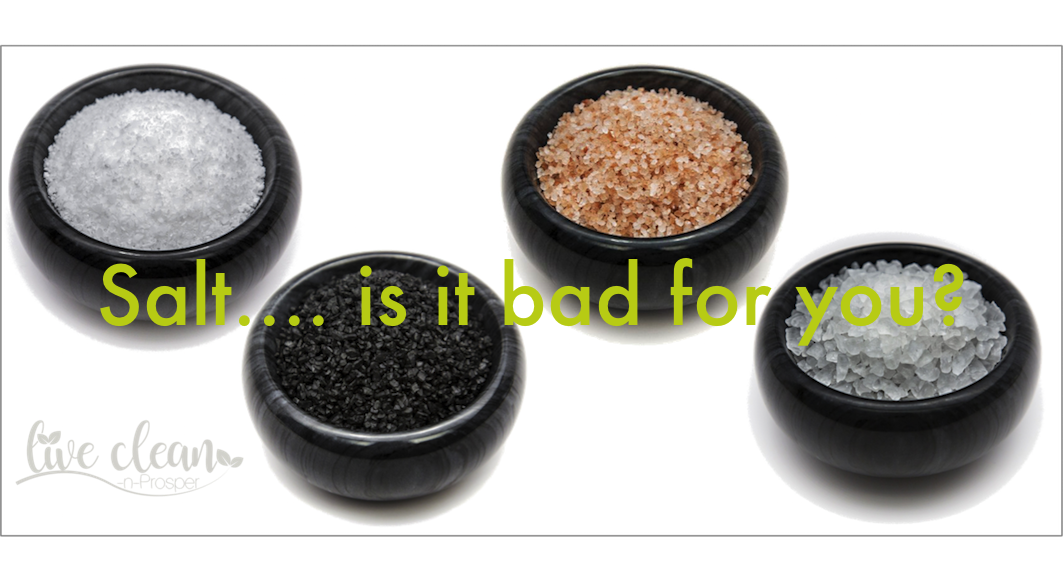Today’s post is about the myth that ‘Salt is bad for you’.
There is a lot of information available in regards to salt and health. I found many health articles reporting on how bad salt is for our health. Conversely, there are also an equal number of articles reporting that it is good for our health.
So what is right?
There are 2 million medical articles published every year regarding our health and sorting out this information was a challenge.
The fact is that the human body needs some salt for good health. Consuming too much may increase the risk of developing high blood pressure, which is a risk factor for other diseases. Too little and the body also suffers.
The trick is to consume a moderate amount. Statistically, many people are consuming too much ‘hidden’ salt. The rise in processed, packaged and canned foods are the issue as they usually contain added salt.
Water and Real Salt are essential for life
The first thing doctors will do in hospital is put you on a life saving saline drip. We were born out of a water salt sack into a world that is 73% water salt solution and have a body that is 73% water and a brain that is 85% water.
The human body contains many salts, of which sodium chloride is the major one. This makes up around 0.4 per cent of the body’s weight at a concentration pretty well equivalent to that in seawater. So a 50kg person would contain around 200g of sodium chloride (approx. 40 teaspoons).
Sodium is a vital nutrient. It helps to maintain fluid balance and cardiovascular function. Sodium is absorbed from the gastrointestinal tract, always bringing water along with it. It is the major mineral in plasma, the fluid component of blood, and in the fluids that bathe the body’s cells. Without enough sodium, all these fluids would lose their water, causing dehydration, low blood pressure, and death.
Fortunately, it only takes a tiny amount of sodium to prevent this scenario. The body, in its wisdom, can make do with remarkably small amounts of sodium. In fact, some isolated population groups in the world manage perfectly well on just 200 mg a day. And when dietary salt is in short supply, the body can conserve nearly all its sodium, dramatically reducing the amount excreted in urine and shed in sweat. Remember that water always follows sodium, and you’ll understand why your skin is dry and your urine scant and concentrated when you are dehydrated and conserving sodium.
To be sure its supply of salt and water is just right, the body has developed an elaborate series of controls. The blood vessels and brain signal the kidneys to retain or excrete sodium as needed; they also fine-tune the sensation of thirst so you’ll provide water in amounts that match the body’s sodium supply.
How much should we consume?
The National Health and Medical Research Council set an ‘Adequate Intake’ of 460–920 mg of sodium per day. This corresponds to 1.15 – 2.3 grams of salt. Most Australian adults have a daily salt intake of about 10 grams. A ‘Suggested Dietary Target’ of 1600 mg of sodium (equivalent to about 4 grams of salt) has been set for Australian adults. (Sources – www.chriskresser.com www.nutritionaustralia.org www.health.harvard.edu )
The best way to ensure a moderate salt intake is to consume less processed and packaged foods. Only add salt when cooking or at the table. Choose a less processed salt, therefore also gaining some trace minerals.
Till the next post,
Live clean n Prosper

